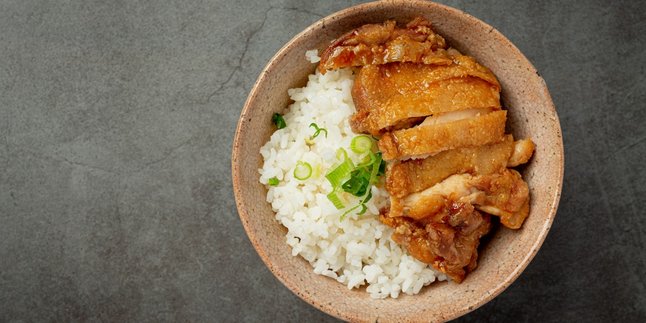Kapanlagi.com - High cholesterol is a health challenge that many people face today. Managing cholesterol levels is crucial to prevent heart disease and vascular disorders.
Often, goat meat is considered the main culprit of high cholesterol, while there are other foods that pose a greater risk. Data from the Ministry of Health even shows that the cholesterol level in goat meat is lower than in other red meats.
Here, KapanLagi.com summarizes from various sources regarding the list of foods that should be limited or avoided by those with high cholesterol, Wednesday (4/9/2025).
1. Why High Cholesterol is Dangerous for Health?
High cholesterol is not just a number on a health report, but it can be a serious threat to the heart. When cholesterol levels rise, plaque can build up on the walls of the arteries, causing narrowing of the blood vessels or atherosclerosis.
If left unchecked, this condition can increase the risk of heart attacks and strokes. Therefore, maintaining normal cholesterol levels through a healthy diet is crucial for protecting heart health.
2. 10 Foods That Are More Likely to Trigger Increased Cholesterol Levels
-
Red Meat: Beef, Lamb, and Pork
Red meat such as beef, lamb, and pork contains high saturated fats that can increase LDL cholesterol in the blood. For example, lamb has about 110 mg of cholesterol per 100 grams. It is advisable to limit consumption and choose lean cuts of meat to maintain heart health.
-
Processed Meat: Sausages, Corned Beef, and Ham
Processed meats contain saturated fats, salt, and preservatives that can trigger increased cholesterol and the risk of heart disease. The processing tends to add saturated fat content. Choose fresh, low-fat meats as a healthier alternative.
-
Organ Meats: Liver, Gizzard, and Tripe
Organ meats are known to have very high cholesterol levels, such as beef liver, which is much higher than regular meat. Excessive consumption can increase the risk of high cholesterol. It is advisable to limit and choose meat parts that are lower in cholesterol.
-
Butter
Butter is a dairy product high in saturated fat and can stimulate the production of bad cholesterol (LDL). When used excessively, it can have a negative impact on blood vessels. Replace it with olive oil or low-fat margarine.
-
High-Fat Dairy Products: Cheese and Yogurt
Full-fat cheese and yogurt contain large amounts of saturated fat that contribute to increased cholesterol. Excessive consumption can affect heart health. Choose low-fat versions for daily consumption.
-
Eggs
One large egg contains about 186 mg of cholesterol, most of which is found in the yolk. If consumed excessively, it can trigger an increase in LDL cholesterol. It is safer to limit egg yolks and choose only the whites.
-
Fried Foods
Fried foods often contain trans fats and saturated fats from the repeated frying process. Trans fats have been shown to increase LDL cholesterol and lower HDL. It is better to choose other cooking methods such as grilling, boiling, or steaming.
-
Chicken Skin
Chicken skin contains more saturated fat compared to the meat itself, which can increase bad cholesterol. Although it's tasty, its consumption should be limited. Remove the chicken skin before cooking for a healthier option.
-
Duck Meat
Duck meat, especially the skin, has a fairly high cholesterol content, around 60–90 mg per 100 grams. Consuming it in large amounts can affect the body's cholesterol levels. Choose skinless meat for a healthier option.
-
Fast Food
Fast food like burgers and hotdogs contain high saturated fat, low fiber, and excess calories. Such foods can trigger obesity and increase the risk of heart disease. It is advisable to reduce consumption and rely more on nutritious homemade meals.
3. Myth vs Fact: Does Goat Meat Trigger High Cholesterol?
Many people avoid goat meat out of fear of cholesterol, whereas the reality is quite the opposite. Goat meat has a lower cholesterol content compared to other red meats.
According to the Ministry of Health, 100 grams of goat meat contains about 75 mg of cholesterol, while chicken thigh reaches 135 mg. So, before avoiding goat meat, it would be wise to consider other food choices that are more risky.
4. How to Control Food Consumption That Risks Increasing Cholesterol?
Reducing saturated fats and choosing healthy foods like vegetables, fruits, and low-fat proteins is essential for maintaining cholesterol balance. A proper diet can lower cholesterol naturally.
By recognizing risky foods, we can be wiser in choosing our daily intake. This helps maintain heart health and overall body wellness.
(kpl/sfa)
Disclaimer: This translation from Bahasa Indonesia to English has been generated by Artificial Intelligence.












